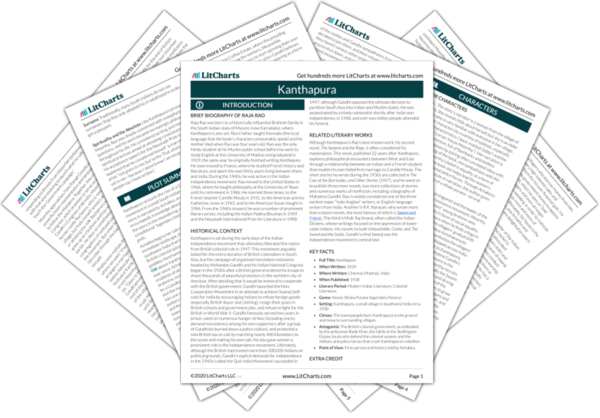The noises and shooting star suggest that the environment of Kanthapura is somehow responding to Bhatta’s deceptive proposal. The departure of a “good soul,” pointed out by the village sage Ramakrishnayya, might refer to Bhatta’s apparent turn toward evil. Rangamma, like Bhatta, is literate and knowledgeable in the ways of the city (and, by extension, the British), so she understands that his pro-brahmin religious ideas are actually grounded in his pro-city and pro-government interests.
